A Deeper Look at the Mondragon Principles 3: The Instrumental and Subordinate Nature of Capital
Worker Co-ops and their Requirements for Capital within Limits
“We do not aspire to economic development as an end, but as a means.”
–Don José María Arizmendiarrieta, spiritual founder of Mondragon
This Mondragon principle, in practice, operates more closely to the Identity Statement principle of Member Economic Participation. I included it in this side road of the over all series because I believe that Mondragon presents a nuance all too often lost in the co-operative movement and, in the 'silo-ed' environment of the US worker co-operative movement, we often tend to forget the role of capital in our organizations is significantly different from that of our industry and capitalist competitors.
The role of capital in a worker co-operative should be two-fold:
1) ensure the on-going operations of the co-operative
2) allow the co-operative to maintain the highest level of safety and quality of work-life.
Thus, this principle presents the balancing act of worker co-operatives. As the opening quote suggests, if we are just in it for the money, what are we really trying to accomplish? However, DJMA has also said, “Cooperativism without the structural capacity to attract and assimilate capital at the level of the requirements of industrial productivity is but a temporary solution, an invalid formula.”
The definition of this principle is as follows:
”The Mondragon Cooperative Experience considers capital to an instrument, subordinate to Labour, necessary for business development and worthy, therefore, of:
a) Remuneration, which is:
* Just, in relation to the efforts implied in accumulating capital, * Adequate, to enable necessary resources to be provided, * Limited in its amount, by means of corresponding controls, * Not directly linked to the profits made.
b) Availability subordinate to the continuity and development of the cooperative, without preventing the correct application of the principle of open admission.”
As a tool, the role of capital should not exclude members from participation in their co-operative. This is a key point for worker co-operatives. The level of capital investment by the member should be appropriate to the needs of the industry and the ability of the worker to contribute. Otherwise, the role of capital dwarfs the rights of the workers, the human beings.
Another important diversion for worker co-operatives is the separation of capital from profits. Too often I hear directors (who have come to us from the “for profit” world) talk about the need for “return on investment” or “return on equity” as the means for deciding the correct course of the co-operative. However, that places capital in a position of greater importance than it needs to be or should be. While a surplus (profit) is needed to re-capitalize the organization and to expand, that should be the limit of its effect. We should not seek to maximize ROI because that mindset leads to the disaster capitalism that has plagued our macro-economy for thirty years.
Capital, in a cooperative, exists to serve the needs of the members collectively. In a worker co-operative, Capital should mean ensuring good paying jobs, safe working conditions and the opportunity for human development. Co-operatives exists as a means for socio-economic transformation of the community, not for the further enrichment of the few who control capital. This may be one of the key differences of cooperation from its market based cousin capitalism. Capital, in a cooperative, should be used to elevate the human being, to eliminate (or minimize) exploitation, and create a sustainable community.
This may seem like an obvious concept, but it is not. Too often co-operative managers hear the siren song of the capitalists. When we start hearing managers talking about industry “best practices” we should immediately ask who those practices are best for. Are those practices “best” for the workers or the stockholders? Are they best for the consumers or the stockholders? Are they “best” for managers or the members? Are they “best” for the community or the stockholders? We need to see that our co-operatives must develop their own best practices for the industry. By creating best practices that do not get tied to maximizing ROI or ROE, we can create strong, vibrant workplaces that will, in turn, create sustainable, vibrant communities.
These are, I believe, the questions that Don Jose wants us to ask. We cannot simply pretend that we are at the grown-ups table when we manage our businesses. We cannot model the “industry” without focusing on the unique role of capital in our co-operatives. As the opening quote states, the role of capital is simply a means to a better future. It should never be considered an end unto itself.
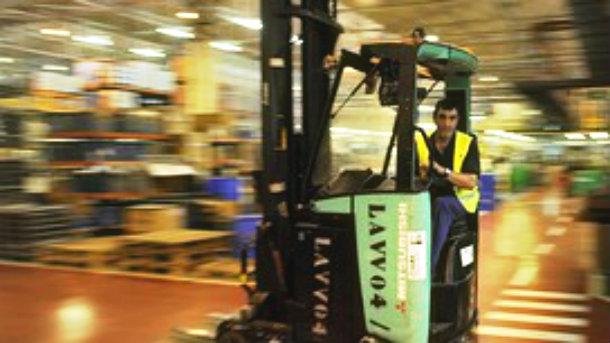

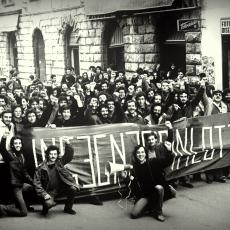
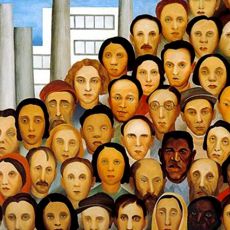
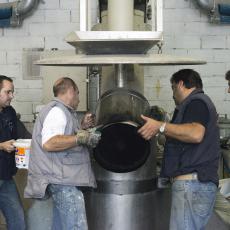
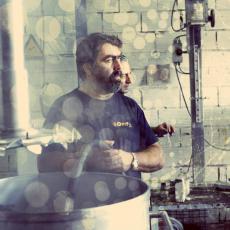
Comments
Post new comment